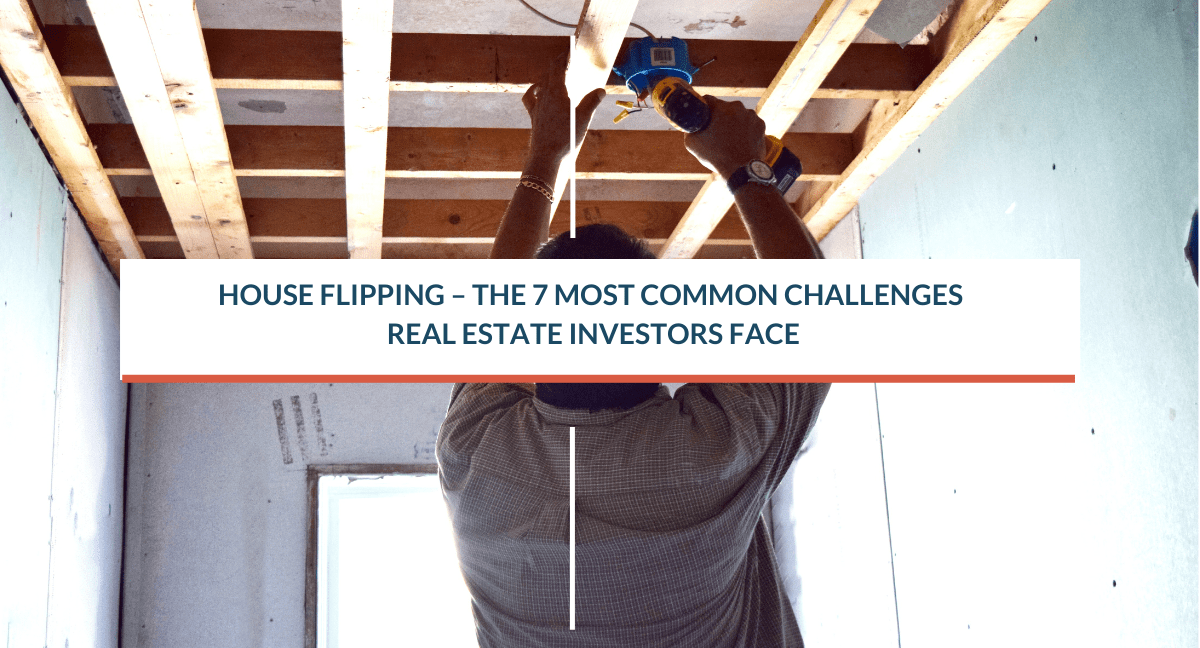House Flipping – The 7 Most Common Challenges Real Estate Investors Face
When many people think about real estate investing, the fix and flip strategy comes to mind. Flipping houses is one way to build wealth through real estate investing. Yet, it isn’t as simple as many of the popular shows make it look. It requires knowledge and skill to make money with a fix and flip. Visit Oftu and get a real estate analyst now.
Before you start on a fix and flip project, learn how to avoid common house flipper challenges. Invest in your success by educating yourself on real estate investing. Download our free eBook, “The 7 Simple Steps Guide to Creating Your Ideal Real Estate Investing Business,” to jump start your business.
Seven Common Challenges in Real Estate Investing
1. Finding the Right Property
Not every house makes a smart fix and flip investment. You need to locate up and coming neighborhoods where you can purchase a distressed or outdated home below market value. When flipping a house, you need to sell in a shorter timeframe instead of waiting for a property to appreciate slowly.
Strategies to Gain Leads for Fix and Flips:
- Tradition sale through a real estate agent or for sale by owner
- Probate properties
- Foreclosure lists or auctions
- Short sales
- Tax lien properties
- Wholesale properties
2. Purchasing for a Profitable Price
When buying a property to fix and flip, you must know the highest price you can bid and still make a profit.
What to Consider When Making an Offer
- Current market conditions
- The property’s true value
- Values and recent sale prices for comparable homes
- The estimated cost for repairs and upgrades
- The potential listing price after the repairs and upgrades
Don’t lose sight that the main goal when flipping a house is making a profit. An appraisal is sometimes worth it if you are unsure of the value. An appraisal provides an unbiased estimate of the current value of the home.
3.Locating Funding or Financing
Whether you plan to pay for the investment yourself or use another option, you need enough money to cover the purchase price and repairs or upgrades.
Funding Options
- Your own cash or money
- Equity from a rental property you own
- Traditional mortgage lender
- Private money
The bottom line is you must secure funding of some type to invest in flipping a house.
4. Building a Trusted Network
Real estate investing is a relationship business. You need a strong and trusted network to succeed in real estate investing. When house flipping, you must depend on contractors, suppliers and other real estate professionals to stay on schedule and budget. Plus, you need leads for buyers when it’s time to sell.
Many house flippers envision doing the work themselves. But, if you don’t have construction experienced or specialized skills, you’ll need to hire professionals for many of the tasks. Roofing, electrical work and plumbing will cost you more in the long run if you don’t work with skilled and licensed professionals. Plus, you can’t grow a real estate investing business exponentially if you’re doing all the work yourself.
Your attitude and reputation are the best ways to build a trusted network. Maintain good relationships and treat others with respect. Also, keep your word and meet your obligations. When you treat others well, they will want to be a part of your network.
5. Staying Organized
Good organization and project management matter for fix and flip projects. You must stay on top of contractors and deliveries. Plus, you need to stick to your timeframe and budget. Once the house is ready for sale, you need to market the home and ensure you stay organized throughout the closing.
There are many different software solutions for project management. Marketing automation also helps keep your business organized. And, once your business grows, hiring an assistant can help keep you on track.
6. Market Volatility
Even in challenging times, real estate investments typically stand the test of time and gain value in the long-term. The challenge comes in the short term when the real estate market experiences volatility.
With fix and flip investments, the short term dictates your success. To make a profit quickly when flipping a house, the timeline is shorter to sale. Uncertainty in the housing market impacts profitability.
One way to combat uncertainty is with market research, including understanding market predictions. As we’ve seen recently, sometimes even the best research and predictions can’t eliminate all risks. Yet, it is still smart to do your homework.
Before you invest in a fix and flip, think about a backup plan. If you can’t sell quickly, could you shift the investment to a rental property? Protect yourself and your business with smart planning.
7. Unexpected Conditions
When flipping a house, plan for the unexpected. Start by securing insurance to protect your investment during renovations. Problems happen. Whether it’s a pandemic, hurricane, wildfire or break-in, even the best investors can’t control the uncontrollable. Have a plan and protection against the worst. But, disasters are rare. Stay positive and optimistic.
Fix and Flip Real Estate Investing
Real estate investing continues to pave a path to wealth. Flipping houses is a solid real estate investment strategy. The key is to build a strong foundation of knowledge and build an organized process that works for you.
Download today my FREE Ebook on the 7 Simple Guide
to build your dream real estate business.
 Subscribe to our podcast
Subscribe to our podcast 


